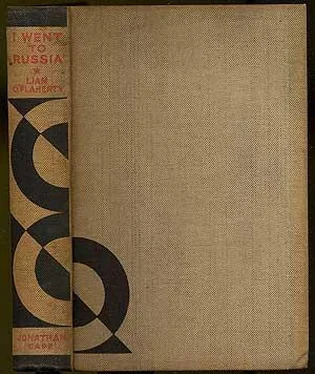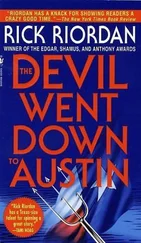I learned later that as soon as a Soviet citizen begins his remarks with that phrase, he is not speaking but reciting something from ‘one of the Fathers’, be he Marx or Lenin or one of the lesser ones, like Engels, Bucharin, Radek, Rosa Luzem-bourg (not a father, of course, but a Holy Woman) Jean Juarez and others. In this instance, the doctor explained to me that it was his social duty to impart to the crew such knowledge about general culture as he possessed and which they did not possess. In this way, by the mutual co-operation of all citizens, all ignorance would be liquidated. Just as he meant to exploit me for my English, he was being exploited for his knowledge of the materia medica.
‘In your country,’ he said, ‘it is different? Yes?’
‘Not quite,’ I said, ‘except that different types engage in the work of liquidating ignorance and lack of culture. Among us, certainly, doctors on board trading vessels do not engage in the liquidation of ignorance. They mostly engage in the consumption of liquid. Maiden ladies assume the work of liquidating ignorance, by the establishment of village clubs, sewing circles, societies for the preservation of the virtue of the young person, societies for the supply of medical knowledge to slum women and such things.’
‘Yes, yes,’ he said. ‘But such organisations are bourgeois. They are meant to keep the working class enslaved.’
‘I suppose so.’
‘Of course. I also retain my contact with shore. I write scenarios for film. Now I write scenario dealing with the Five Year Plan. You have heard of Five Year Plan? It is for industrialisation of Soviet Union. Now all films must deal with Five Year Plan. This ship is also Five Year Plan. We all give thirty-five per cent of our wages to the Five Year Plan. Also you will find crisis of alimentation in Soviet Union. All food is exported in order to buy machines for Plan. Cigarettes also. In three years it shall be complete, because we decide already to finish Five Year Plan in four years.’
‘Marvellous,’ I said. ‘Are all the crew eager for this, for giving their wages and for liquidating their ignorance and for industrialisation?’
‘Oh! Yes,’ he said lightly. ‘Already great work had been done. This motor ship is one of five made by workers of Leningrad. Also fifteen are laid down at Leningrad. In five years we shall have big fleet. And so on in all industries. But I am fear that capitalists make war before then. They do not wish Soviet Union to get strong.’
‘I should think not,’ I said.
He talked on and simply carried me off the hatch by his enthusiasm, so that I wanted to jump up at once and liquidate something, or at least make a ship or a Five Year Plan. He awed me by the number of Liquidating Societies to which he belonged. He awed me still more by the revelation that over one hundred and thirty million people were organised under the domination of men like himself, going somewhere. What a weapon! One hundred and thirty million simple and ignorant people organised under the control of a couple of million people with a Religious Idea. Never before had the world known such a phenomenon. I tried to explain that to him, but he gently waved aside my ideas.
‘Mister!’ he said. ‘The situation is such. We are planning not for such a thing, to make great world power, but for proletarian revolution in all the world. We wish abolish bourgeois class. Then all world is free. All men and women equal. All men and women have culture and beauty and knowledge. No more hunger. No more anarchy. So? You understand?’
‘Yes,’ I said, ‘I understand.’
Why argue with him? It is both foolish and immoral to argue with a man who has a religion. Neither would it pay me at this stage of my journey to begin arguments. Indeed, I agreed with his programme, not because it was going to make the world free, but because it had power behind it and in it. But for myself? I would not submit to such a world power. My ancestors never submitted to the English, who are more akin to me than the Russians. Sitting on the hatch beside the enthusiastic doctor, I felt like saying:
‘I’d rather disembowel myself like a Jap than be a cog in your machine, ordered about by some duffer I despise.’
While we talked, several members of the crew joined us. They treated the doctor absolutely as an equal. They looked at me with the curiosity of peasants into whose village a stranger has come to rest for an hour. Using the doctor as an interpreter, they asked me questions about conditions on our ships. They laughed when my answers were translated. They could not understand how our sailors could submit to such inhuman treatment.
Most of them were boys who had never seen the sea until a few months before. They were all healthy. They looked well fed and happy. In a few hours they had washed down the ship, working very hard. Now they were having a ‘smoko’. Some of the engine room crew were there also and I was impressed by the change machinery had made in their condition. The old coal-using stokehold was gone, that earthly hell I knew of old. Now there was oil. The engine room crew was just as happy and as healthy as the deck crew. I envied them all their brotherly happiness, their confidence, their hope for the future, the eagerness in their faces. Yet I did not belong. When they heard I had been a sailor, they asked me to work on their ship. The captain would get me a job. Perhaps I could teach them something. Soon they were joking with me and making indecent remarks about my person, delighted at discovering that I was not really a bourgeois but a comrade. And just as I felt a sense of solidarity with Dunya, so did I feel at one with them. They were of the same earth as myself. They had no religion no more than I had. They had no bee in their bonnet. They rejoiced in the same healthy things as myself, women, drink, fighting, eating, work. But over them also I felt the ruling power. What?
It is a terrible thing to be old, for the old are unable to submerge their intellects in the delusions of youth.
Suddenly the gong for lunch sounded and we all dived for our food. The doctor and myself entered the mess room together. Still feeling alien, even hostile, I looked with suspicion and embarassment at the ten officers who were already seated at the table. They took no notice of me. They were busy with their food, attacking it without ceremony, in a manner I had forgotten, but which I once knew among the lumberjacks of Canada. Each helped himself from a great dish that lay in the centre of the table. Nobody passed food. Each leaned over his neighbour. They all talked and laughed as they ate. Among them were engineers, mates, electricians, wireless operators, all bronzed, powerfully built, healthy. No two faces belonged to a single type. Some were Jews. Others were Slavs. There was a Cossack and a Lithuanian and a Tatar from Tiflis. But they all had a common vitality, a common exuberance, a common lack of the morbid introspection which comes from a development of individual character. They were a mass, even though there were only ten of them and it was obvious that they loved being a mass, being together, being brothers. Even at table, they gave me the impression of a great avalanche prowling down, irresistibly, upon Europe, sweeping before them all the decadent rubble into which our civilisation and power has subsided. Woe to us!
‘My God!’ I thought. ‘Just think what we can oppose to these men; an army of butlers, parsons, refined bank clerks and a generation that is only interested in jazz, tennis, chocolate and senseless fornication. Undoubtedly we are doomed.’
The doctor said something to them in answer to their questions. It seemed that he said I was not a bad fellow, for they all began to smile at me and they accepted me into their brotherhood. I felt at one with them. Then I thought:
Читать дальше












